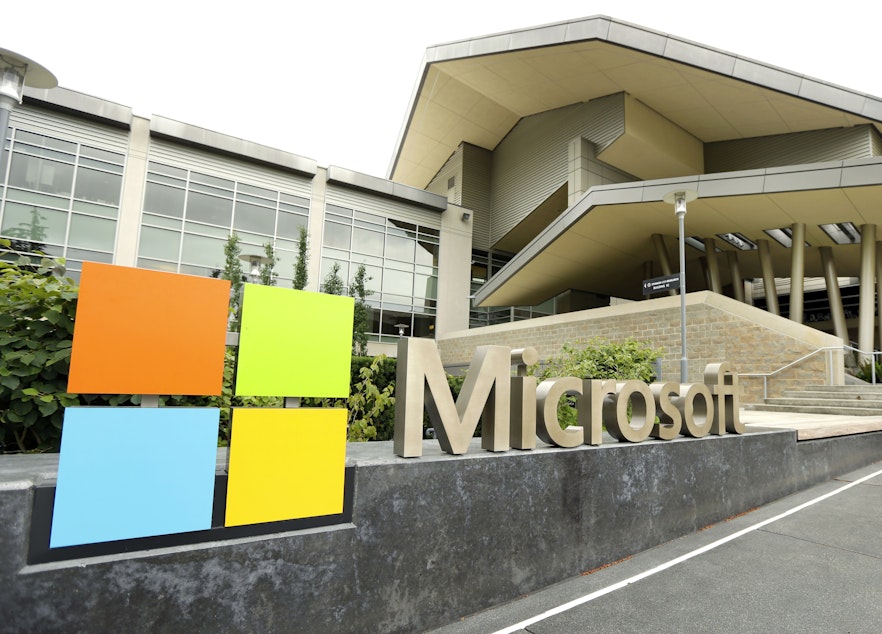Microsoft's new climate plan: Charge itself for polluting

The Redmond-based tech giant also plans to eventually power its data centers with renewable energy.
"[It's] the most significant commitment that we've made on environmental sustainability in the entire history of the company," says Microsoft Chief Environmental Officer Lucas Joppa.
Microsoft's new climate action plan, announced this month, is getting praise not just from the company but also environmental advocates.
The company says it will charge a $15 carbon fee on itself. Joppa says the company already charges a carbon fee, but this will nearly double that.
It means Microsoft will set aside $15 for every ton of carbon its divisions generate, from building electricity, cloud computing and the carbon emitted during employee travel. The money collected will be spent on programs that aim to reduce carbon pollution.
Joppa: "Time is short, and resources are thin, and there's no real viable path towards a sustainable future doing anything close to business as usual."
Sponsored
Microsoft also wants to completely power its data centers with solar, wind and hydro-power in the next decade. Joppa says the data centers are halfway there already, and that Microsoft's Puget Sound region campus runs on 100 percent renewable energy now.
Data centers require the most electricity of all Microsoft buildings, as they run at all hours to manage massive amounts of cloud computing.
"While our data center business is growing rapidly, and the energy to support that business is increasing as well, we're at the same time drawing down the raw amount of emissions" says Joppa. "It's a difficult task but we're well on path to achieve it."
Global environmental advocates are hailing Microsoft's new carbon fee plan.
"The fact that Microsoft thinks that it can support and manage a $15 fee, is a signal to the rest of the sector that they should be also able and willing to do it," says Paula DiPerna, an advisor for the Carbon Disclosure Project.
DiPerna is an expert on carbon pricing worldwide and also helped form the world's first cap-and-trade program, the Chicago Climate Exchange, and has since been involved in carbon markets.
Sponsored
She calls Microsoft's plan very progressive, and says it's an industry leader.
DiPerna notes that it's close to the price on pollution that's enforced in California and the European Union. She expects carbon pricing could be mandated nationally in the future, and says the fact Microsoft's doing it on its own is significant.
"They are acting as if they were being regulated to pay a fee, which is first of all very progressive in terms of thinking," she says.
DiPerna says it's also a great business model for the company because, "if you know where your carbon emissions are, the chances are you will also find energy waste there. You'll know where there could be more energy savings, you'll know where there could be room for innovation."
Microsoft was among the first major corporations to institute an internal carbon fee according to the group Carbon Disclosure Project. About 250 U.S. companies have committed to one.
Washington voters considered, but rejected, a statewide $15 carbon fee in 2018.




